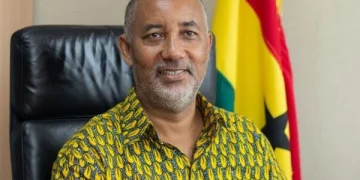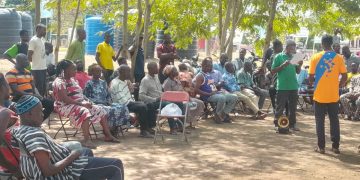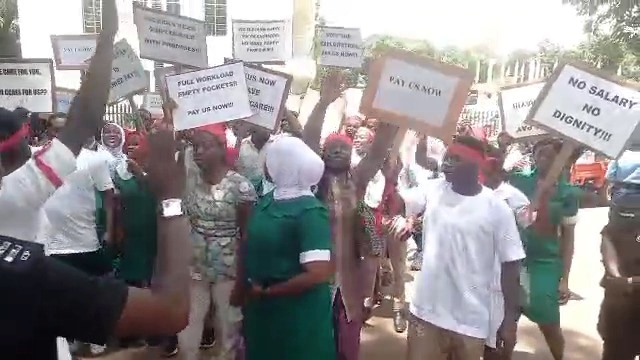Hundreds of frustrated nurses and midwives, part of the Coalition of Unpaid Nurses and Midwives Association of Ghana, staged a peaceful demonstration in Tamale on Tuesday, demanding the immediate payment of their salary arrears.
Dressed in their uniform with red to symbolize their anger and frustration, the demonstrators marched through the main streets of the city, chanting slogans and holding placards with messages such as “Pay Us Now!”, “No Pay, No Work!”, and “Health Workers Deserve Better!”
According to the association, more than 7,000 of its members have not received their salaries since January 2025, with some cases stretching back to December 2024. They emphasize that the delay has plunged many into severe financial hardship, making it difficult to afford transportation, food, rent, and even basic healthcare.
“We have reached out to all relevant authorities, written letters, attended meetings, and made countless follow-ups. But nothing has changed,” said Mudasir Abdul Rauf, the Northern Regional Secretary of the association.
“Our members are depressed and financially paralyzed. Some are single mothers, while others are the primary breadwinners. This situation is simply unacceptable.”
Broken Promises and Mounting Pressure
Despite repeated assurances from the government and the Ministry of Health, nurses and midwives are expressing their frustration with empty promises. This group insists that their concerns have been ignored for too long, despite the critical role they play in Ghana’s healthcare system.
The coalition believes that the government’s failure to pay them is not merely an administrative oversight; it reflects misplaced priorities that undermine the dignity of health professionals.
“How can a government claim to value health workers when we have to protest just to be paid for work we’ve already done?” asked a protester who works at a district health facility in the Northern Region. “We’re not asking for bonuses; we’re asking for what we’re owed.”
The group has vowed to continue a series of regional demonstrations until their outstanding payments are made in full. In the coming days, they plan to escalate their protests to other parts of the country if no concrete action is taken.
Impact on Healthcare Delivery
The ongoing salary delays are not merely a labor issue; they are negatively impacting both the morale and efficiency of healthcare delivery across the country. In some communities, nurses and midwives are struggling to afford transportation to work. Others are reportedly skipping shifts or considering resigning entirely.
Health analysts warn that if this crisis is not resolved soon, it could further weaken an already fragile healthcare system, particularly in rural areas where personnel are scarce. “This is a ticking time bomb,” a local health director, who requested anonymity, told our reporter. “If our nurses and midwives feel neglected, patients will ultimately pay the price.”
A Call to Action
The Coalition of Unpaid Nurses and Midwives is urgently calling on the President, the Ministry of Finance, and the Ghana Health Service to take action. They argue that a thriving democracy cannot exist when the welfare of essential workers is overlooked.
The coalition is demanding transparency in the payroll system and a permanent solution to what they describe as “chronic administrative delays” in salary processing for newly posted health workers.
In a passionate appeal, Mudasir Abdul Rauf urged all Ghanaians to support their cause. “This is not just about us. It’s about the future of Ghana’s health system. If you value nurses and midwives, stand with us now.”
The Ministry of Health and the Ministry of Finance have not yet responded to multiple requests for comment on this issue.
Source: www.KumasiMail.Com/Noah Nash Hoenyefia

































































